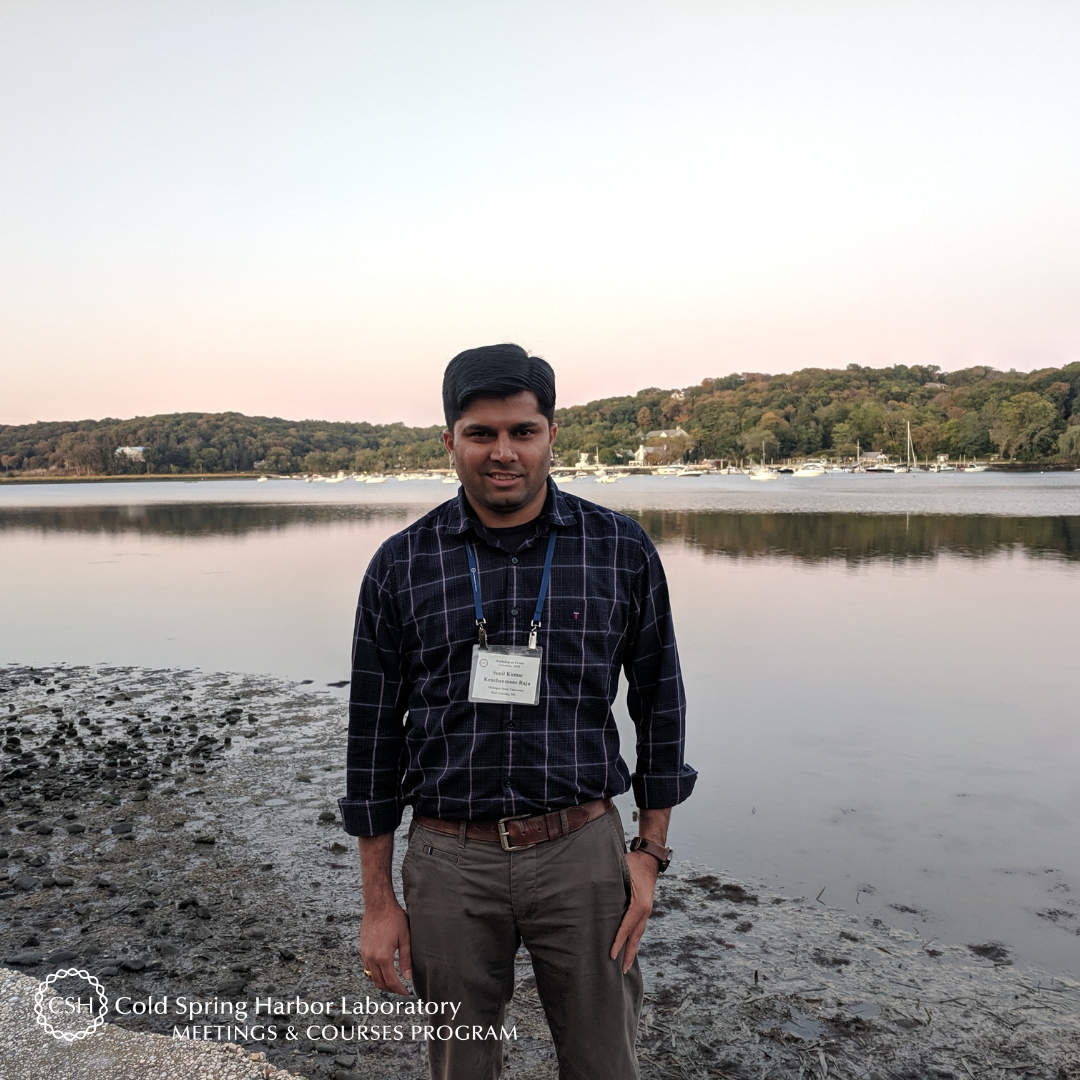Meet Jackson Tonnies of the University of Washington! A member of the Christine Queitsch/Josh Cuperus lab in the Department of the Genome Sciences, the graduate student joined us at last week’s Plant Photobiology – ISPP 2021 meeting. At his first CSHL meeting, Jackson presented a poster entitled “Synergy between functional elements drives activity of light-responsive enhancers”.
Tell us about your research.
I currently work on understanding the rules that regulate DNA expression in crop plants. Recently, I have been focused on picking apart a few pieces of DNA that help plants respond to light.
How did you decide to focus on this area/project?
I decided to go into plants because I want to help ensure the food supply continues in spite of future changing climates.
What and/or who is the inspiration behind your scientific journey?
Before college I wanted to work in solar power, battery creation, or biotech with an emphasis on agriculture as those were the areas that I thought to be important. I chose plant biotechnology because I like studying plants the most.
What impact do you hope to make through your work
By illuminating regulatory rules in plants my research will enable improved crop breeding and reduce the land acreage required to feed the world’s population.
What do you love most about being a researcher?
The best part of being a researcher is the ability to continue to learn and have access to those who are also passionate about what they are studying.
What drew you to attend this meeting?
Finding and connecting with researchers with a deep knowledge of light responses in plants.
What is your key takeaway from the Meeting; and how do you plan to apply it to your work?
The key takeaway is that light response is a multifaceted, deep area of study. I learned a lot about the players on the protein side of plant regulation and will try to use this viewpoint to inform my genomics analysis in the future.
What feedback or advice would you share with someone considering to participate in this meeting?
I would recommend trying to balance focusing on the speakers that most interest you with exploring areas of the conference that are outside of your usual interests. It can be daunting with the number of talks/posters but it makes for a great collection of cool science.
What’s the most memorable thing that happened during the Meeting?
I really enjoyed the session on optogenetic tools. It encouraged me to think about new ways that these tools could be used. Tools such as green light receptors and systems that ignore day/night cycles open up a lot of possibilities in plants.
Thank you to Jackson for being this week's featured visitor. To meet other featured researchers - and discover the wide range of science that takes part in a CSHL meeting or course - go here.
Image provided by Jackson Tonnies







